After the polls closed late Tuesday evening, Maine Secretary of State Matthew Dunlap said the state was close to eclipsing the 69 percent record voter turnout set in the 2008 election, but he was not prepared to say that record would be shattered.
“We don’t have the final numbers yet and we won’t for a couple more days,” Dunlap said. “It’s probably going to be in the 67 percent range or higher, but I’m not sure yet.”
Voter turnout was heavy throughout Maine. Election officials in Westbrook and Lewiston had to contact Dunlap to ask for permission to make photocopies of blank ballots after Lewiston High School ran out of ballots and Westbrook ran low. Under state law, an election post cannot make copies of state ballots without the secretary of state’s permission.
Westbrook City Clerk Angela Holmes said she made 150 copies of each version of the state ballot when her supply started to dwindle.
“We had a phenomenal, phenomenal voter turnout,” Holmes said. “We were joking here earlier that if there’s a problem on Election Day, this is a good problem to have.”
Dunlap said he had been predicting that 65 to 67 percent of voters would participate in the election, but he said the number of registered Mainers voting could easily exceed those marks when the final numbers are tallied.
Dunlap and his staff said that official voter turnout won’t be known until later in the week. Dunlap said city and town clerks have until Monday – Friday, Veterans Day, is a holiday – to provide final numbers.
Dunlap, who toured six polling places Tuesday, including stops in Bangor, Augusta, Portland, Lewiston, Waterville and his hometown of Old Town, reported long lines.
He was told that voter turnout in the college towns of Lewiston and Orono were extremely high, just a couple of days after a flier appeared on the campus of Bates College in Lewiston warning college students that they would need to register their cars and change the address on their driver’s license in order to vote in the election.
“That false threat may have backfired,” Dunlap said.
“It has been a very heavy turnout,” Dunlap said Tuesday afternoon before heading off to the Cross Insurance Center in Bangor on his cross-state tour of polling places. “But, frankly, we are not alone. It is happening across the country. Vermont, for instance, told me they have set a record for new voter registrations. And the voter turnout in states like Connecticut, North Carolina and Missouri has been very heavy.”
Getting final voting results Tuesday evening may have been affected by the large number of absentee ballots that had been cast.
Kristen Muszynski, spokesperson for the Secretary of State’s Office, said only 125 towns out of about 500 were authorized to count absentee ballots prior to Tuesday’s election. Those ballots were tabulated on Saturday or Monday.
That means the remaining towns had to count absentee ballots on Tuesday, a process Muszynski said could slow the voting tabulation process down.
Depending on a town’s preference, the absentee ballots could be counted after the polls close at 8 p.m. “They can count ballots all night long if they want to,” she said.
The Secretary of State’s Office received 263,000 requests for absentee ballots. As of Monday, more than 247,000 Mainers had voted absentee, Dunlap said. He said 900,000 people in Maine are voter-age eligible, so “almost one-third of our voter-age eligible people have voted already.”
Beyond choosing a new president in a hotly contested race, Mainers were deciding on an unprecedented five citizen-initiated ballot questions, and picking candidates to fill every seat in the Legislature. In many communities, voters also decided on local ballot questions and chose municipal and school officers.
In Old Town, where it usually takes five or 10 minutes to vote, Dunlap said, he waited in line for about an hour before he voted.
There had been no reports of major problems or disruptions, Dunlap said. Voter tabulating machines in Woolwich, Mt. Vernon and Lincolnville malfunctioned, but those glitches were repaired.
“What we are seeing is a very smooth-moving election with long lines and a very heavy voter turnout,” he said.
He tried to tamp down any suggestions that the election could somehow be rigged or there could be tampering with ballots.
He noted that voting in each of Maine’s 503 cities, towns and plantations is supervised by local residents – not his office – and that they have paper ballots to resolve any disputes.
“It would take a conspiracy on a biblical scale to rig an election,” he said.
Towns across southern Maine were reporting strong voter interest.
In Falmouth, Town Clerk Ellen Planer estimated that more than 300 people were waiting when she opened the doors to the high school gym at 7 a.m.
“This is more than I’ve ever seen,” Planer said as the crowd surged toward the voting booths.
Similar scenes were happening across Maine, as residents awoke to clear skies and moderate temperatures to kick off an Election Day that marked the end of a campaign that has been among the most divisive in American politics. Some said they were just glad it was over.
“I’m pretty excited for it to be done,” said Alex Denniston in Falmouth. “It has been an exhausting process, to be sure.”
About 550 people had turned out to vote at the Cape Elizabeth High School gymnasium by 9 a.m., which is about typical for a presidential election, said Town Clerk Deborah Lane. The line began at 6:15 a.m., 45 minutes before the polls opened. More unusual, Lane said, was the number of absentee ballots submitted this year, about 3,900.
Many towns had high absentee voting this year. An election warden in Scarborough said Tuesday that 7,030 absentee ballots had been issued and 6,755 – 43 percent of the electorate – were returned, a record for that town.
Voter traffic was slow and steady at Portland City Hall in the morning. Inside, the diversity of views that has marked this election were on display.
George Hutchins came wearing a Marine tie, a VFW cap and a blue jacket specked with patriotic and military pins. A Desert Storm veteran and supporter of Donald Trump, he said he was concerned about voter fraud.
“If someone isn’t responsible enough to have a picture ID, they’re not responsible enough to vote,” he said.
Voters do not need photo IDs to vote in Maine. People who register to vote must show proof of residency, such as a utility bill that includes name and address, or sign an affidavit swearing that they are who they say they are.
The city of Lewiston – which was at the center of a debate Monday over whether out-of-state college students should vote in Maine – had steady turnout all day.
City Clerk Kathy Montejo said there were long lines at each polling place beginning at 7 a.m., even after the city logged a record number of absentee ballots – 6,939.
Students from Bates College were turning out strongly, she said, but no more than in any other presidential election. No complaints or confrontations had been reported as of 4 p.m.
In Portland, Yugu Yobo was voting in his first presidential election. A native of what is now South Sudan, he said he realized how different this election was from the 2012 race, in which Mitt Romney challenged President Obama.
Asked who he voted for, Yobo said it was someone who would unite the country. Asked if that person was a woman, he smiled.
Tuesday’s presidential election was being followed in countries around the world. A couple of foreign observers even came to Portland. In the crowd at Portland City Hall were two men wearing armbands that read, “OSCE/ODIHR.” They declined to give their names to a reporter, but said they were from Germany and France.
The men were from the Office for Democratic Institutions and Human Rights. Based in Poland, the group was created in 1990 and has observed hundreds of elections in the 57 member countries. Its stated mission includes promoting human rights and defending democracy. It is affiliated with the Organization for Security and Cooperation in Europe.
CNN reported Monday that more than 400 observers have been sent to 33 states, which is 10 times more than in 2012. The group noted changes in voter registration and identification laws in some states, and claims of rigged elections and tampering, for the stepped-up presence. The observers have no legal authority. But some conservative organizations have charged that the group is biased and some states have blocked the observers from their polling stations.
Outside City Hall, volunteers were collecting signatures for Maine AllCare, a proposed single-payer health insurance system that would be publicly funded. They hope to collect enough signatures to bring the issue of universal health care to voters in 2018.
Clara Wallace was sitting in a wheelchair, signing her name. Wallace said she had a stroke and suffers from nerve damage.
“People in Maine really need the help,” she said. “There are so many people out of work.”
In addition to the presidential race, many voters had strong opinions about local issues.
In Gray, where 1,000 ballots had been cast by 9:45 a.m., Ken Viger, 47, a heating contractor, said he came out to oppose Question 3, which would require background checks for private gun sales.
“It’s not right for the state,” Viger said. “It’s not something that is going to prevent any crimes, and it’s unenforceable.”
At the polling place at the Portland Exposition Building, Carlin Whitehouse said he is eager to see ranked-choice voting pass.
“We’ve had some very intimate experiences with vote spoilers in Maine,” the 37-year-old student said, pointing in particular to Gov. Paul LePage’s election in 2010. “If we truly want to build coalition governments where there are more than two choices, it’s a huge start,” Whitehouse said. “I think it’s going to invigorate our democracy.”
He and Rebecca Greenfield, a 39-year-old attorney, brought their 3-year-old daughter, Liora, to the polls with them. Greenfield said the presidential election was most important to her, and she voted for Hillary Clinton.
“She has the policy experience necessary, and the other candidate does not,” she said.
She said she was worried about how the day would unfold, unsure how much stock to put in the final voter polls. “I’m definitely anxious,” she said.
More information on all the decisions facing Maine voters Tuesday can be found at pressherald.com/politics. And complete election updates and results will be available throughout the day and night at pressherald.com.
By the time polls close statewide at 8 p.m., Maine almost certainly will have a majority of its 1 million registered voters cast ballots – Maine’s voter participation regularly ranks among the highest in the nation. In 2012, the last time America elected a president, 713,180 Maine residents, 69.5 percent of all registered voters, cast ballots, according to data from the Secretary of State’s Office. That ranked Maine sixth in the nation, according to federal data. That’s about the same turnout rate as in 2008, the previous presidential race, when 69.4 percent of all registered voters cast ballots.
At the Boys & Girls Club on Broadway in South Portland, about half a mile from Southern Maine Community College, voting Tuesday morning was the heaviest some poll workers had seen in 40 years. Thirty people were in line half an hour before the polling place opened at 7 a.m. More than 100 people waited in lines that stretched out the doors at times, and some people who came during the morning rush waited 45 minutes to an hour to vote.
“I haven’t seen that many people since Jimmy Carter (ran for president in 1976), and it’s been steady all morning,” said Lois Reckitt, a longtime South Portland poll worker who this year is running for the Legislature in District 31 as a Democrat.
Staff writers Randy Billings, Megan Doyle, Gillian Graham and Ray Routhier contributed reporting to this story.
Send questions/comments to the editors.




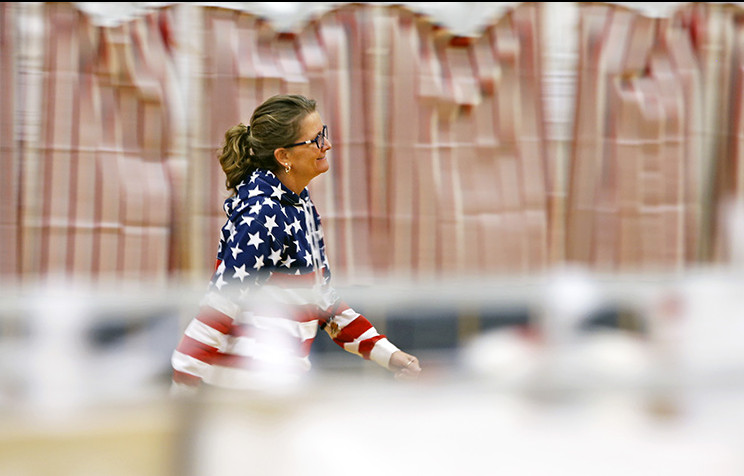
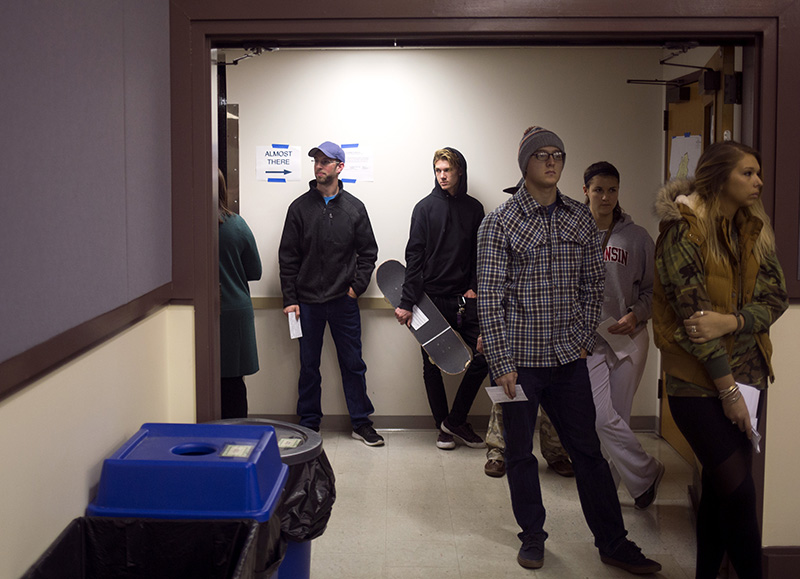
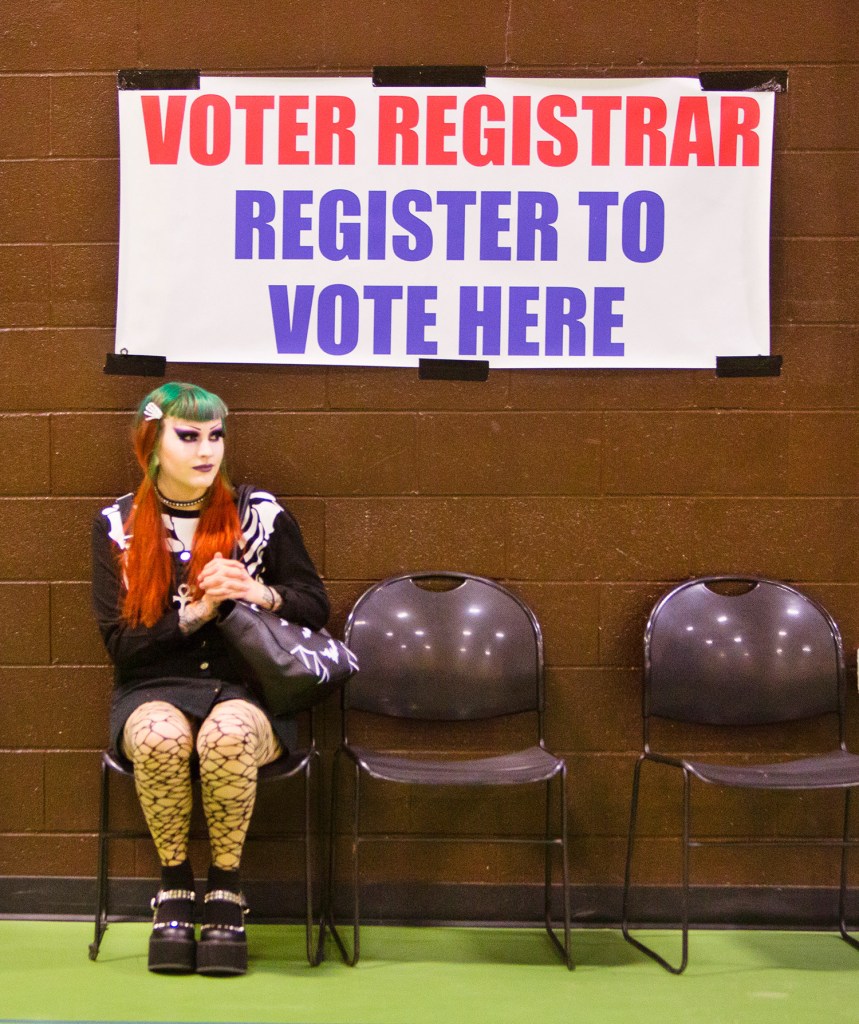
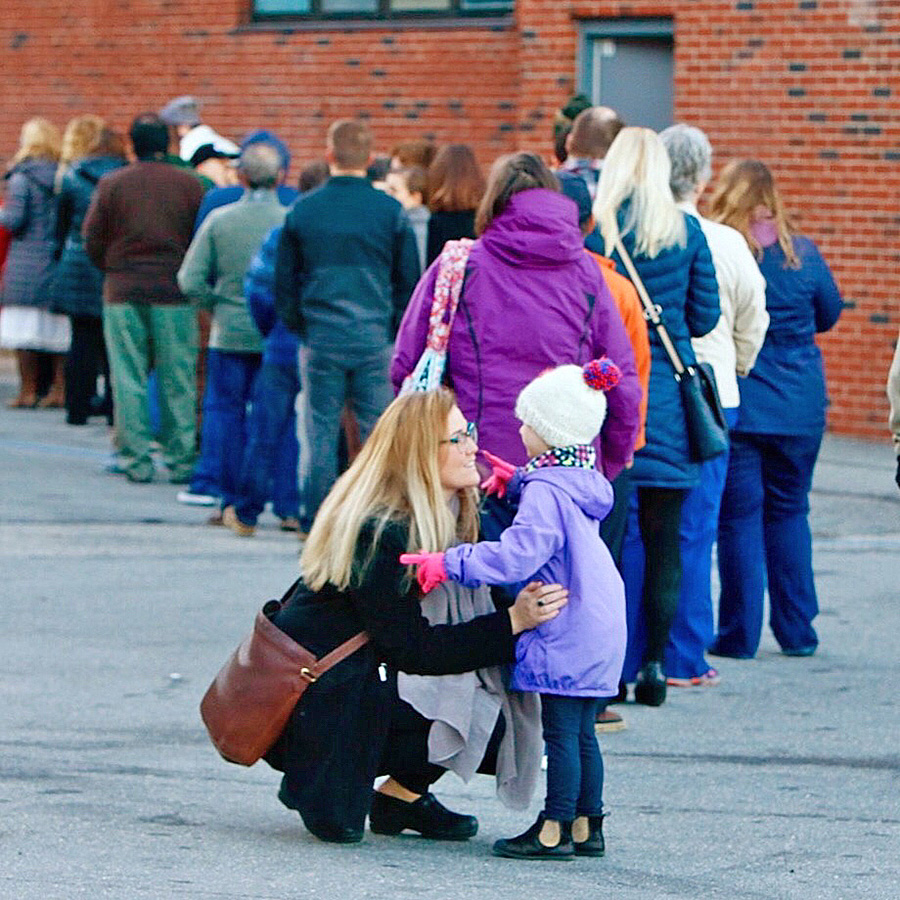
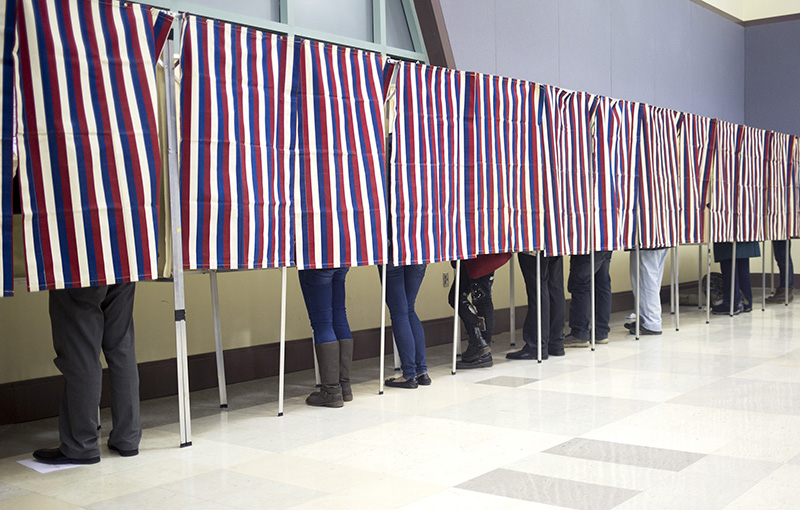
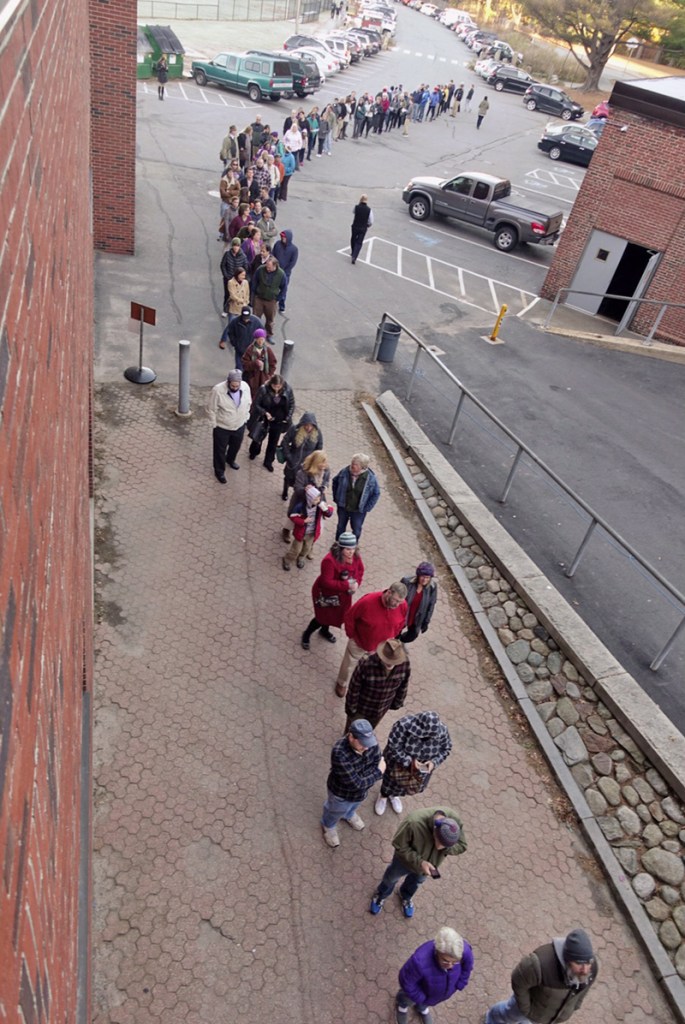
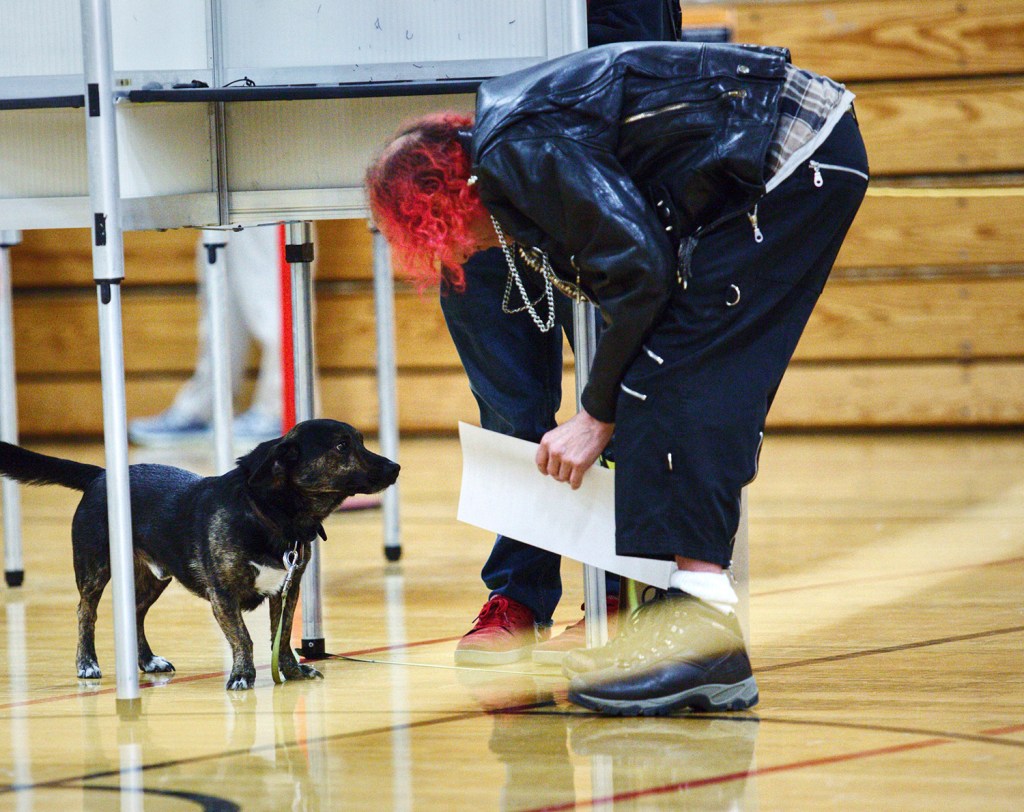
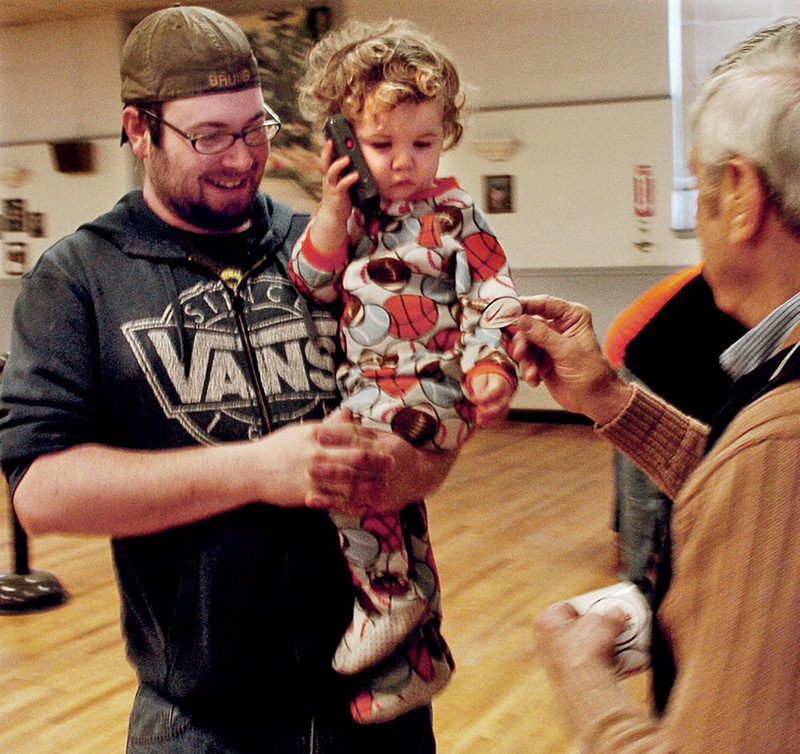
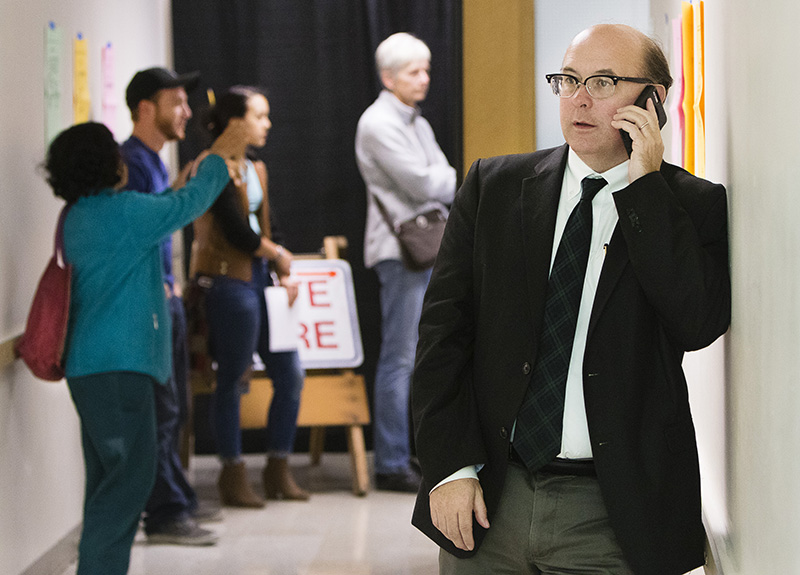
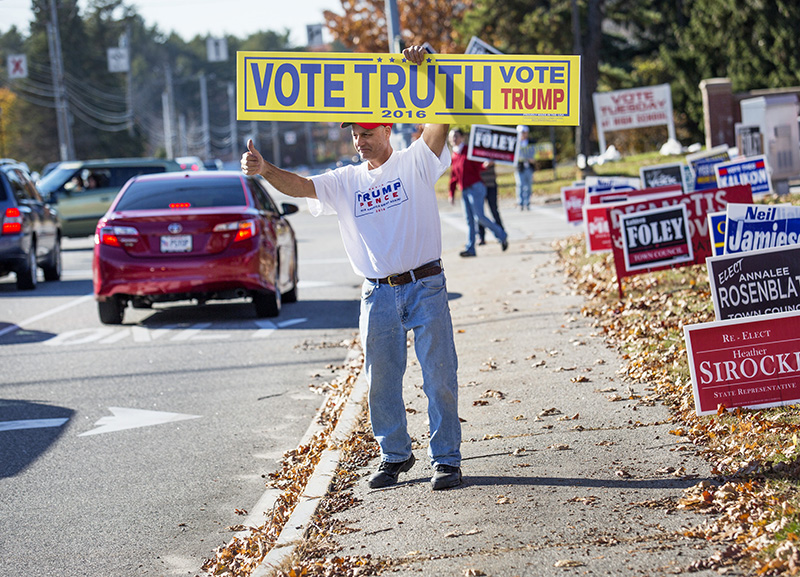
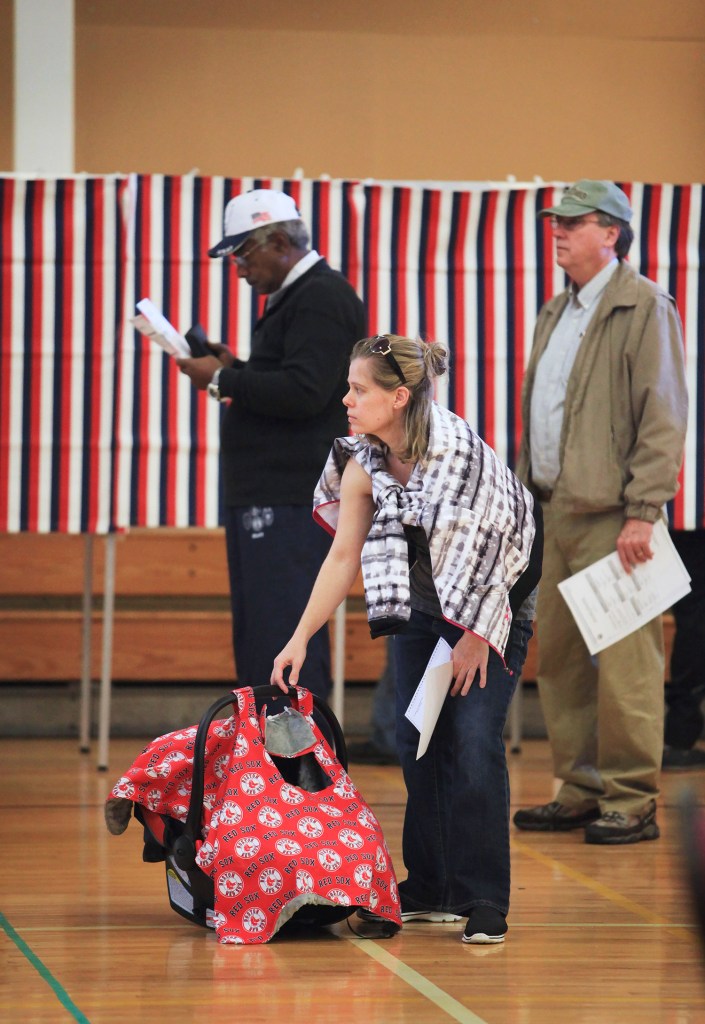
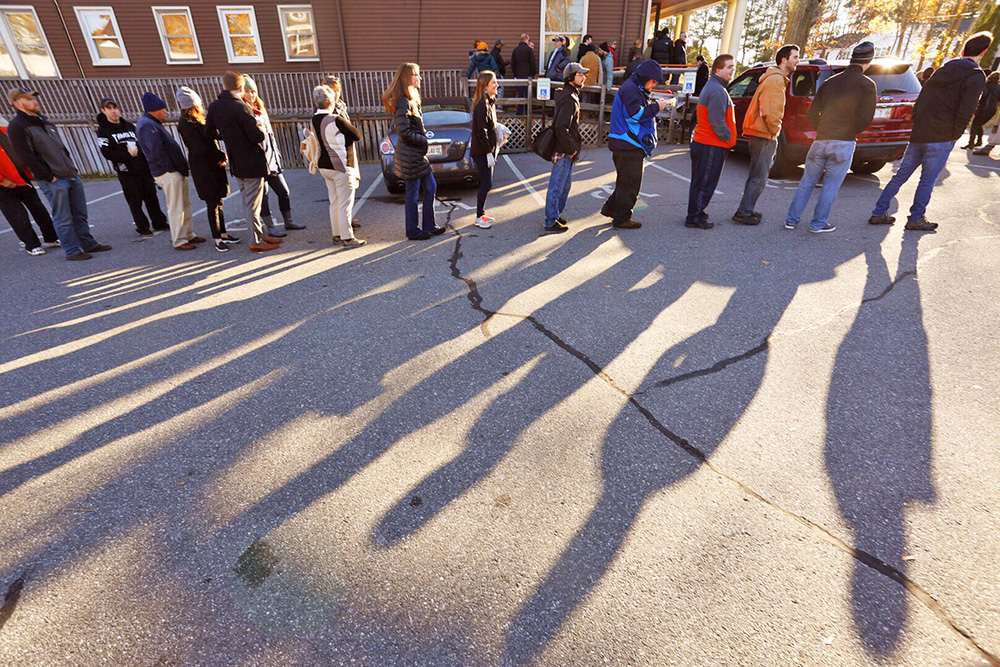
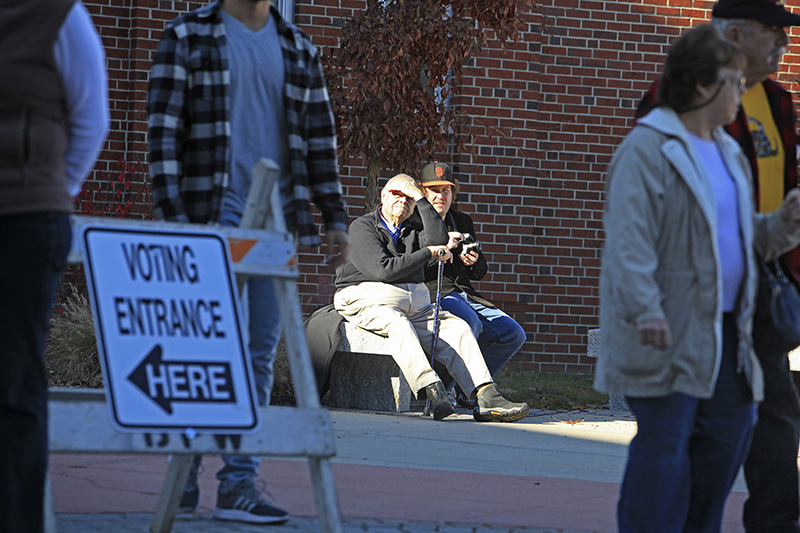
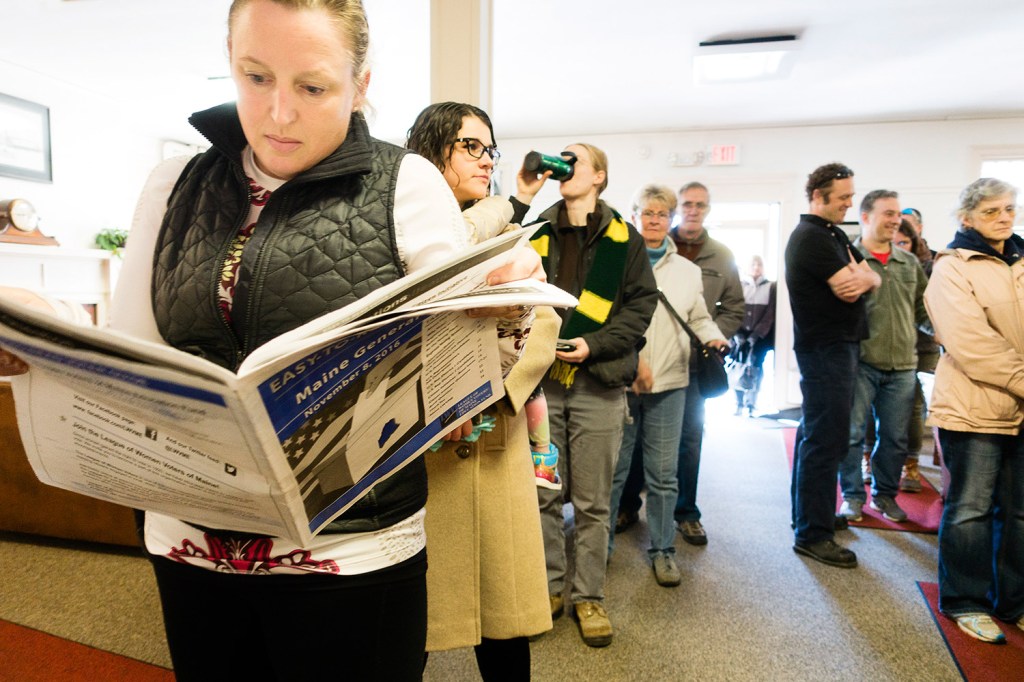
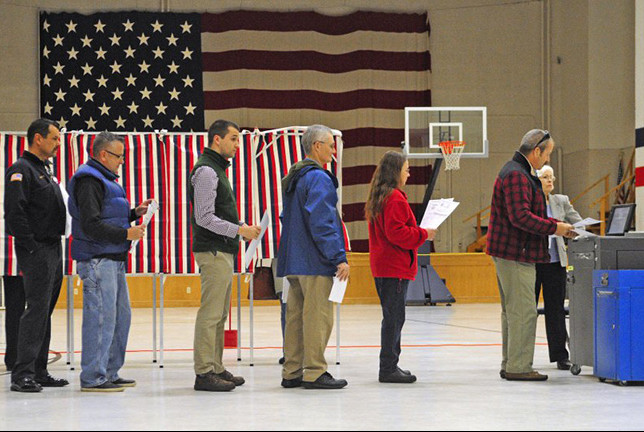
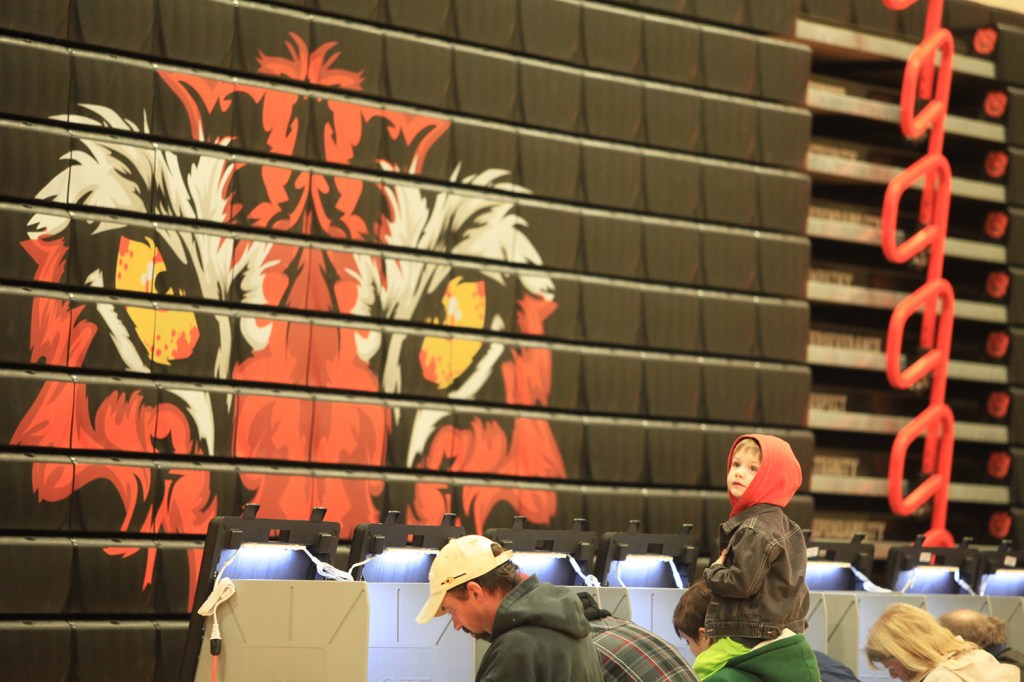
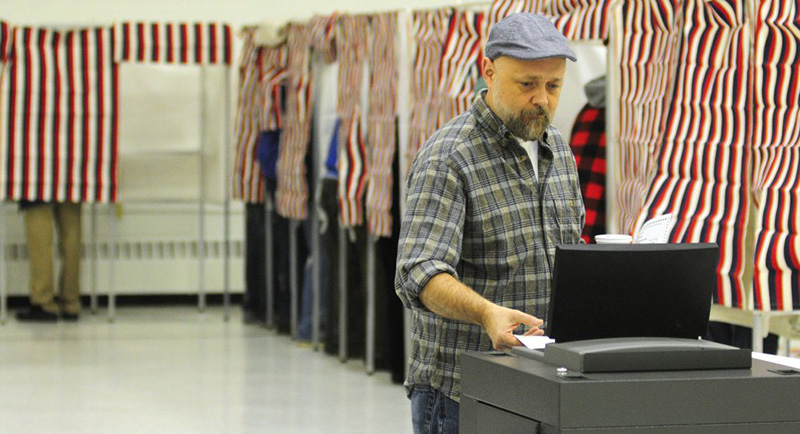
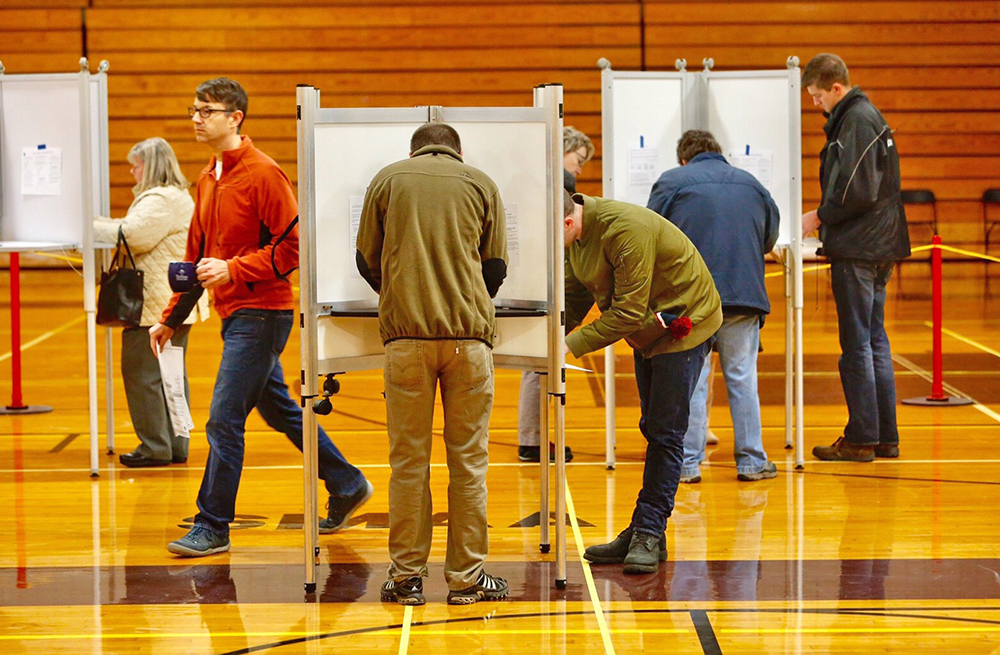
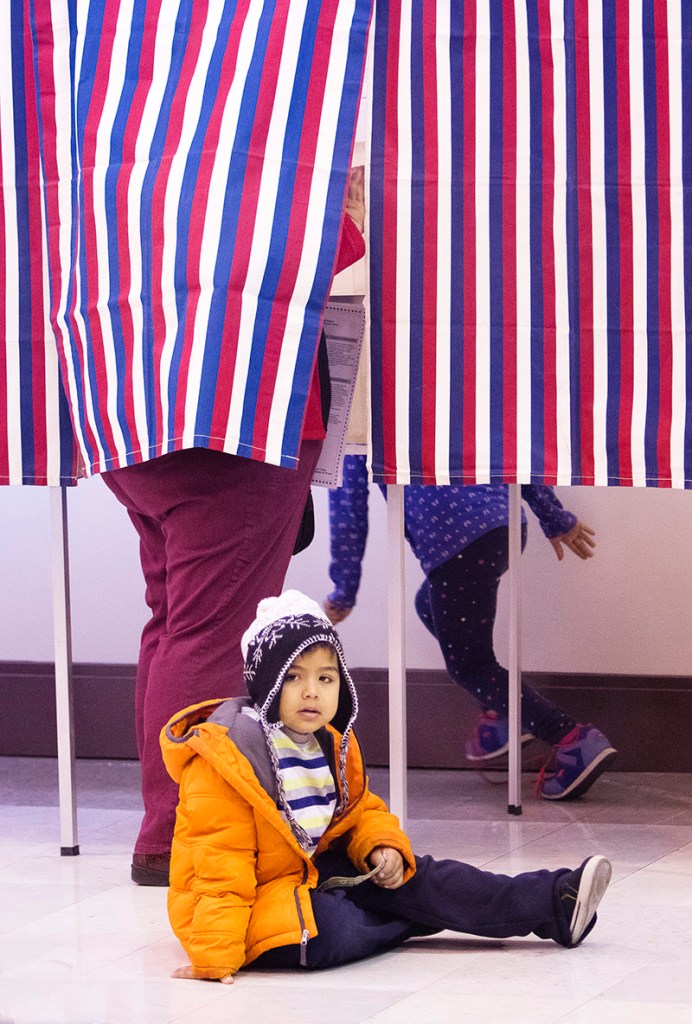
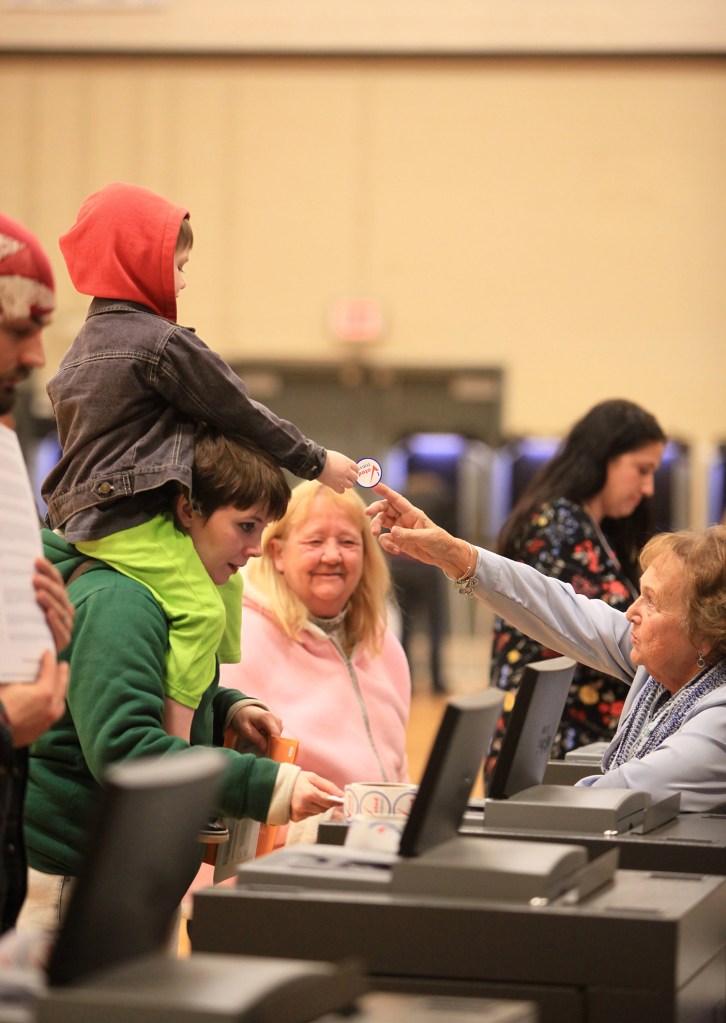
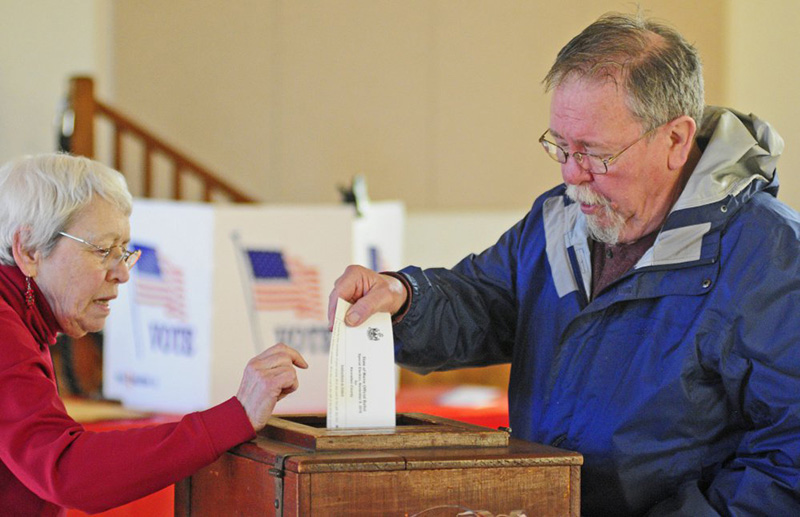
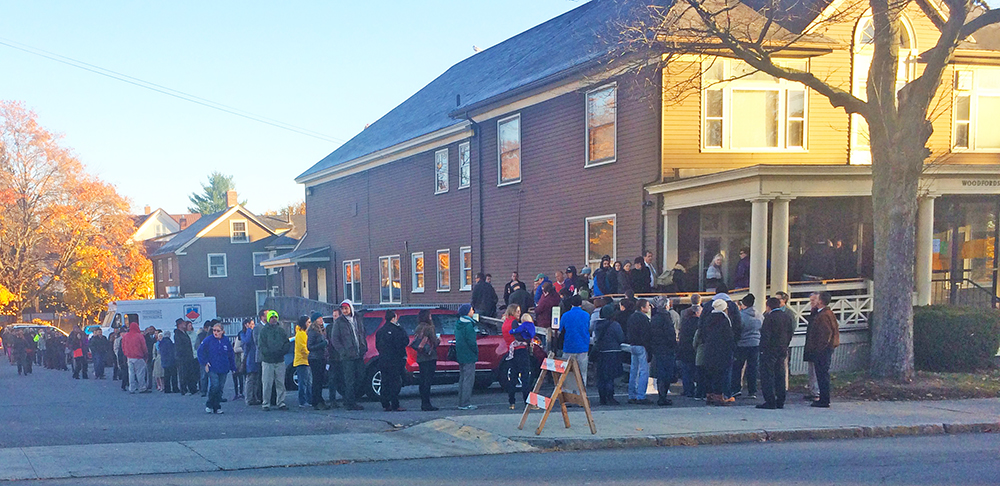
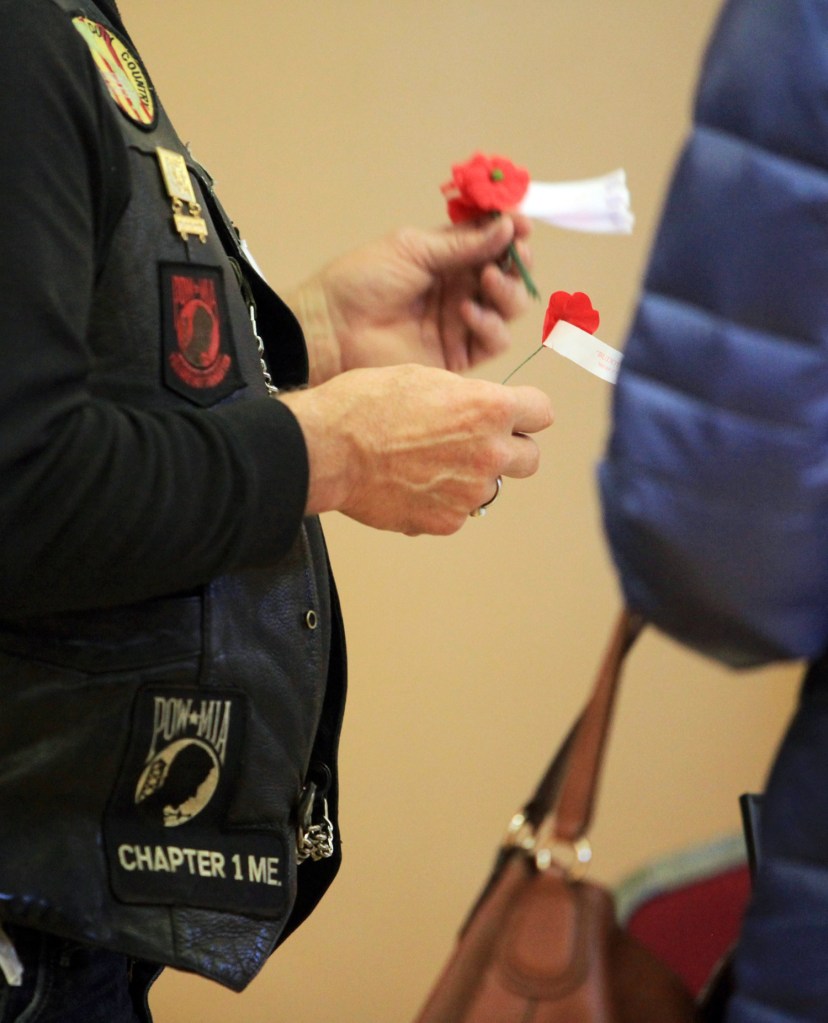
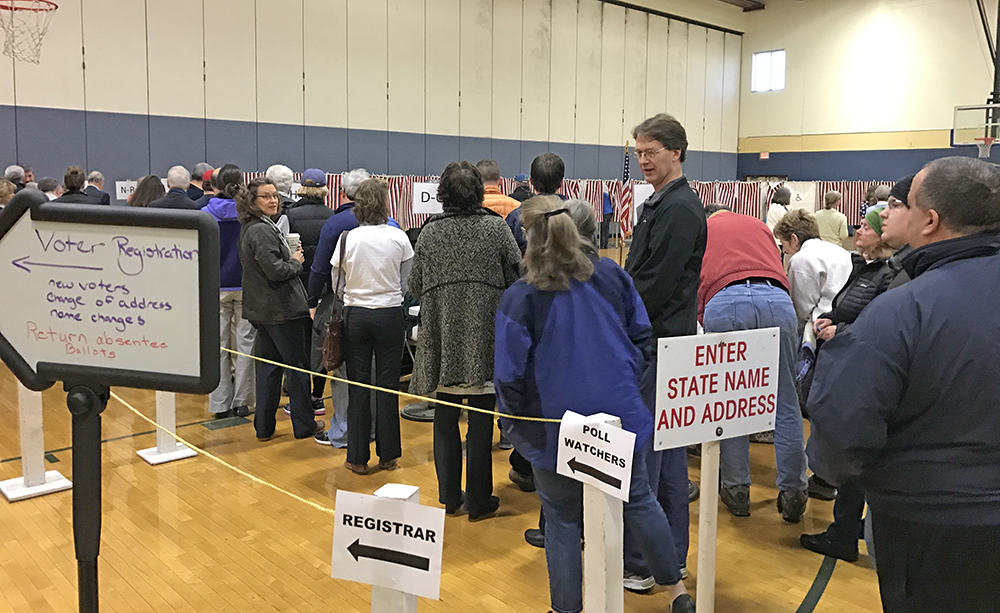
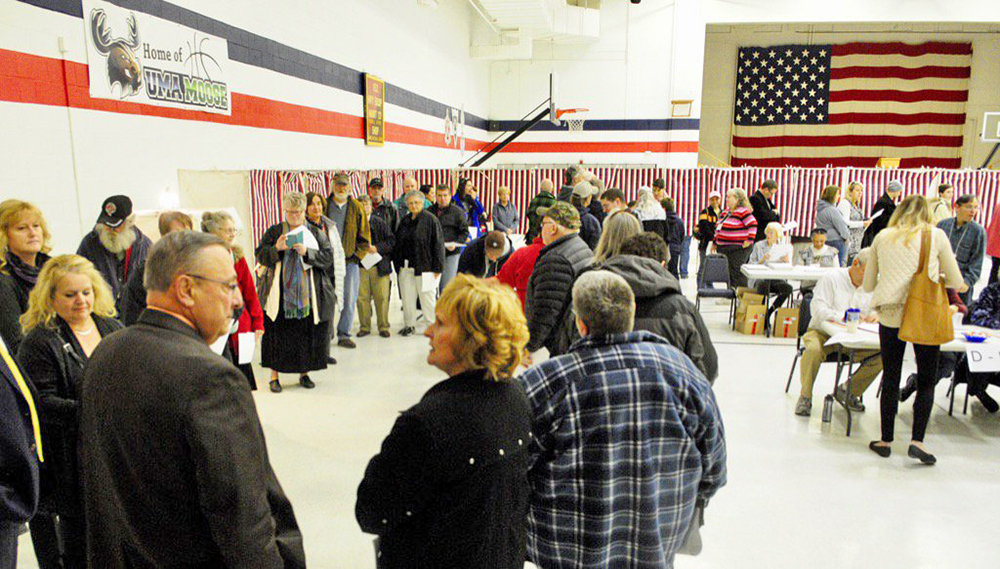
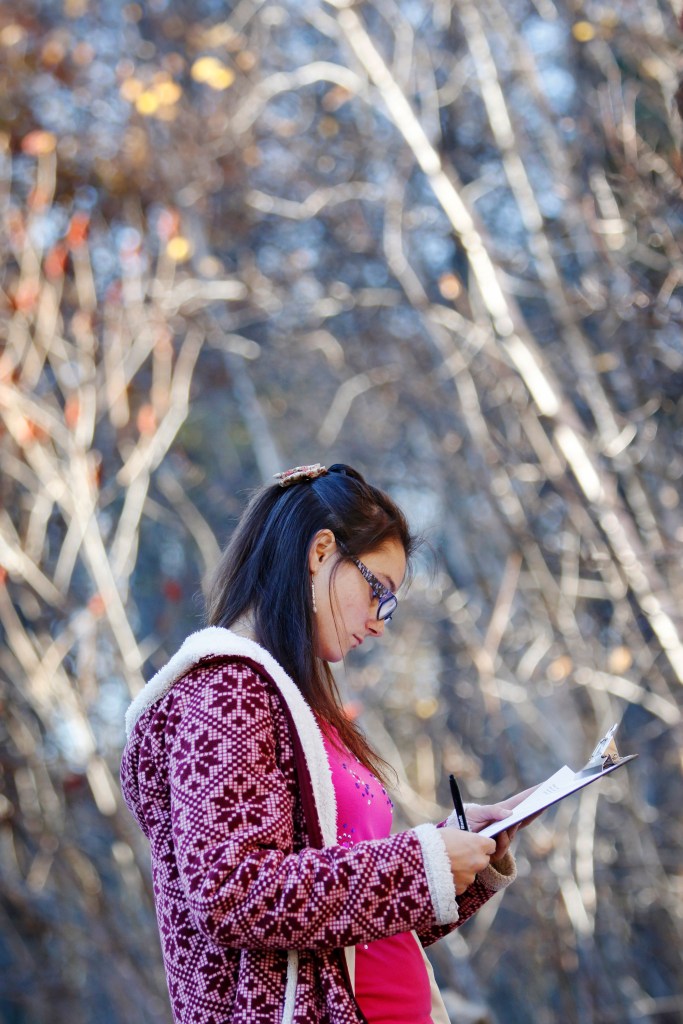
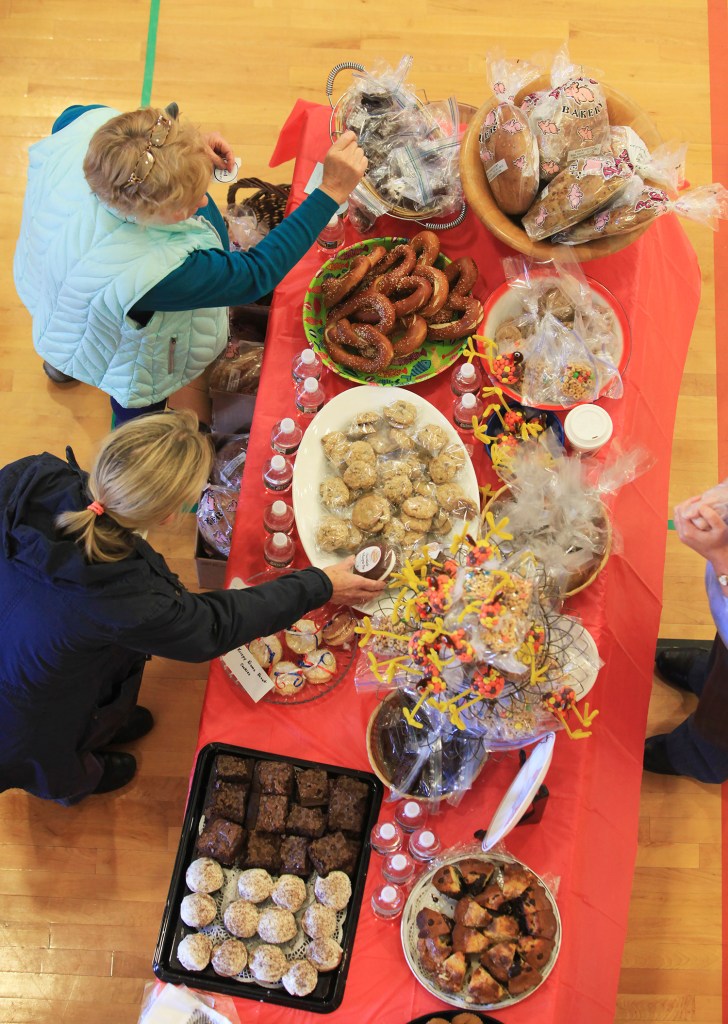
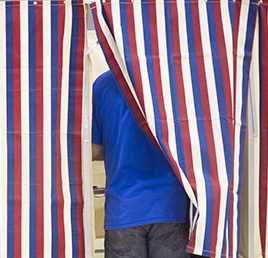
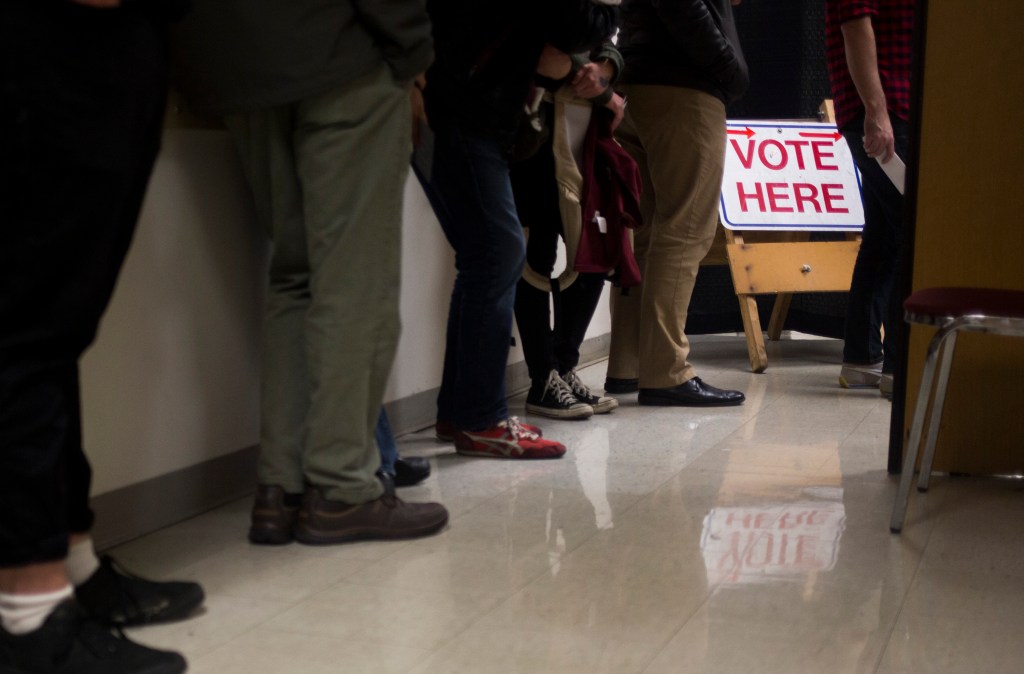

Comments are no longer available on this story